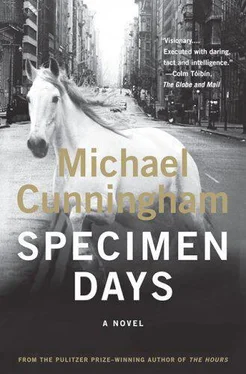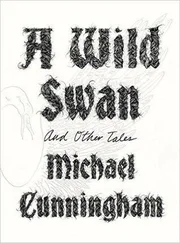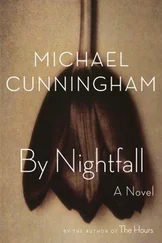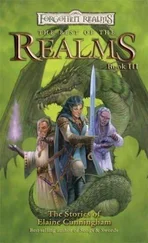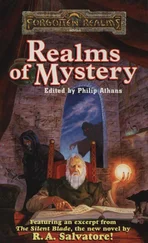Michael Cunningham - Specimen Days
Здесь есть возможность читать онлайн «Michael Cunningham - Specimen Days» — ознакомительный отрывок электронной книги совершенно бесплатно, а после прочтения отрывка купить полную версию. В некоторых случаях можно слушать аудио, скачать через торрент в формате fb2 и присутствует краткое содержание. Город: New York, Год выпуска: 2005, ISBN: 2005, Издательство: Farrar, Straus and Giroux, Жанр: Современная проза, на английском языке. Описание произведения, (предисловие) а так же отзывы посетителей доступны на портале библиотеки ЛибКат.
- Название:Specimen Days
- Автор:
- Издательство:Farrar, Straus and Giroux
- Жанр:
- Год:2005
- Город:New York
- ISBN:0-374-70515-1
- Рейтинг книги:4 / 5. Голосов: 1
-
Избранное:Добавить в избранное
- Отзывы:
-
Ваша оценка:
- 80
- 1
- 2
- 3
- 4
- 5
Specimen Days: краткое содержание, описание и аннотация
Предлагаем к чтению аннотацию, описание, краткое содержание или предисловие (зависит от того, что написал сам автор книги «Specimen Days»). Если вы не нашли необходимую информацию о книге — напишите в комментариях, мы постараемся отыскать её.
Specimen Days — читать онлайн ознакомительный отрывок
Ниже представлен текст книги, разбитый по страницам. Система сохранения места последней прочитанной страницы, позволяет с удобством читать онлайн бесплатно книгу «Specimen Days», без необходимости каждый раз заново искать на чём Вы остановились. Поставьте закладку, и сможете в любой момент перейти на страницу, на которой закончили чтение.
Интервал:
Закладка:
Lucas loaded a plate and fed it in. The machine took the plate as it always did. It made the impressions, four across, six down. As Lucas carried the first of the day’s plates to Dan, he wondered if his machine spoke to the others at night, when the men were gone and the machines lived here alone. He could imagine it easily enough, the machines murmuring in the darkened rooms, singing the songs of their men, praising their men, dreaming of them, singing each to the others, He is mine, he is my only love, how I long for the day when he allows me to have him completely. Lucas thought he should warn Dan, he should warn Tom and Will. But how could he tell them?
Dan was bent over his machine. He said, “Good morning, Lucas,” without looking up.
“Good morning, sir.”
Lucas lingered after he had dropped the plate in Dan’s bin. Dan was the biggest man in cutting and stamping. He was massive and stooped. He carried his immense round shoulders like burdens; upon his shoulders, partly buried in them, his head looked out with drowned blue eyes. Lucas knew nothing of his life but could imagine it. He would have a wife and children. He would have a parlor with a bedroom on one side and a bedroom on the other.
Dan turned from his machine. He said, “Something wrong?”
“No, sir.”
Dan took a kerchief from his pocket, wiped the sweat from the gleaming red dome of his brow.
He was missing the first and second fingers of his right hand. Lucas hadn’t noticed it before.
Lucas said, “Please, sir. What happened to your fingers?”
Dan lowered the kerchief and looked at his hand as if he expected to see something surprising there.
“Lost ’em,” he said.
“How did you lose them?”
“Accident.”
“Was it here? At the works?”
Dan paused. He seemed to wonder whether or not to reveal a secret.
“Sawmill,” he said.
“You worked in a sawmill, before you came here?”
“That’s right.”
Dan wiped his brow again and returned to his work. Idling so, talking, wasn’t permitted. Lucas returned to his own machine and loaded another plate.
A different machine had eaten Dan’s fingers. That machine, one that split logs, contained a fragment of Dan’s ghost, though the rest of Dan lived on. Would this new machine know of that? Could it hear that other machine, singing from far away in a sawmill, happy to have had Dan’s fingers but lamenting the loss of the rest of him, wishing the new machine better luck?
Catherine must be sewing now. Lucas couldn’t think how a sewing machine might take her. It would be an arm with a needle, ratcheting. It might prick her, it could do that, but it couldn’t harm her truly.
There must be other machines at her work, though, machines that could maim. He struggled to picture it. He could imagine presses and rollers through which the garments must be passed. Did she go near those machines during her day? She might. He couldn’t know. She might be asked to take bodices and shirts to be sent through a larger apparatus. It would be big as a carriage, he thought; white, not black; it would have a mouth through which the freshly made shirts and dresses were fed, to be smoothed and folded. It would exhale torrents of steam.
Finally, the whistle blew. Lucas waited for Jack Walsh to pass and say, “All right, then.” He shut down his machine. He hurried away. He ran up Rivington, keeping to the street, dodging the carts and carriages.
A river of girls and women was already streaming out of the Mannahatta Company when he got there, and they showed no signs of having seen a calamity that day. He searched for Catherine among the crowd. He saw any number who might have been her. They were so alike, in their blue dresses. As more and more of them passed by, in twos and threes, talking low, stretching their spines and flexing their fingers, he finally made bold enough to ask one of them, and then another, if she had seen Catherine Fitzhugh. Neither of them knew who she was. There were hundreds of girls in the sewing room; Catherine would be known only to the few who worked near her. From a distance Lucas saw Emily Hoefstaedler walking among the many, plump and serene, laughing lewdly with another girl, but he didn’t speak to her. He would never speak to her about anything, certainly not about Catherine. He asked another girl and another. Several smiled and shrugged, several scowled, and one, a young dark-haired girl, said, “Won’t I do instead?” and was pulled away, laughing, by her friends.
And then he saw her. She was near the end, with an older woman who had drawn her thin gray hair severely back and walked with her neck craned forward, as if her face were more eager to go forth than her body was.
Lucas approached them. “Catherine,” he cried.
“Hello, Lucas,” she said. She looked at him with exquisite patience.
“Are you well?”
“Quite well. And you?”
How could he say what he was? He said, “Shall I pray? Shall I venerate and be ceremonious?”
“Lucas, this is my friend Kate.” The older woman dipped her head.
“Kate, this is Lucas. He is Simon’s brother.”
Kate said, “I am sorry for your loss.”
“Thank you, ma’am.”
“Have you come to see me home?” Catherine asked.
“Yes. Please.” He struggled not to snatch at her hand.
“Kate, it seems I am escorted. I’ll see you tomorrow, then.”
The older woman dipped her head again. “Goodbye,” she said. Her face led her onward, and her body followed.
Catherine placed her hands upon her hips. “Lucas, my dear,” she said.
“You are well.”
“As you can see.”
“Will you let me walk with you?”
“I have to sell the bowl.”
“Where is it?”
“In my reticule.”
“Don’t sell the bowl. Keep it. Please.”
“Come with me, if you like.”
She walked on. He went beside her.
How could he tell her? How could he make her see?
He said, “Catherine, the machines are dangerous.”
“They can be. That’s why you must be careful.”
“Even if you are careful.”
“Well, being careful is the best we can do, isn’t it?”
“You mustn’t go to work anymore.”
“Where should I go, then, my darling?”
“You could sew at home, couldn’t you? You could take in piece-work.”
“Do you know what that pays?”
He didn’t know what anything paid except his own work, and he had learned that only by being paid. He walked on beside her. They passed together through Washington Square. He didn’t come often to the square. It lay beyond the limits of his realm; it wasn’t meant for a boy like him. Washington Square, like Broadway, was part of the city within the city, cupping its green and dappled quietude, ringed by the remoter fires a place where men and women strolled in dresses and greatcoats, where a lame beggar played on a flute; where the leaves of the trees cut shapes out of the sky and an old woman sold ices from a wooden cart; where a child waved a scarlet pennant that snapped and rippled in countertime to the flute player, who in his turn produced a little point of ginger-colored beard as answer to the pennant. Lucas tried not to be distracted by the beauty of the square. He tried to remain himself.
He asked Catherine, “Where are we going?”
“To someone I know of.”
He went with her through the square, to a shop on Eighth Street. It was a modest place, half below the street, called Gaya’s Emporium. Its window showed two hats floating on poles. One was pink satin, the other stiff black brocade. Under the hats were bracelets and earrings, arranged on a swatch of faded blue velvet, gleaming like brave little gestures of defeat.
Catherine said, “Wait here.”
Читать дальшеИнтервал:
Закладка:
Похожие книги на «Specimen Days»
Представляем Вашему вниманию похожие книги на «Specimen Days» списком для выбора. Мы отобрали схожую по названию и смыслу литературу в надежде предоставить читателям больше вариантов отыскать новые, интересные, ещё непрочитанные произведения.
Обсуждение, отзывы о книге «Specimen Days» и просто собственные мнения читателей. Оставьте ваши комментарии, напишите, что Вы думаете о произведении, его смысле или главных героях. Укажите что конкретно понравилось, а что нет, и почему Вы так считаете.
